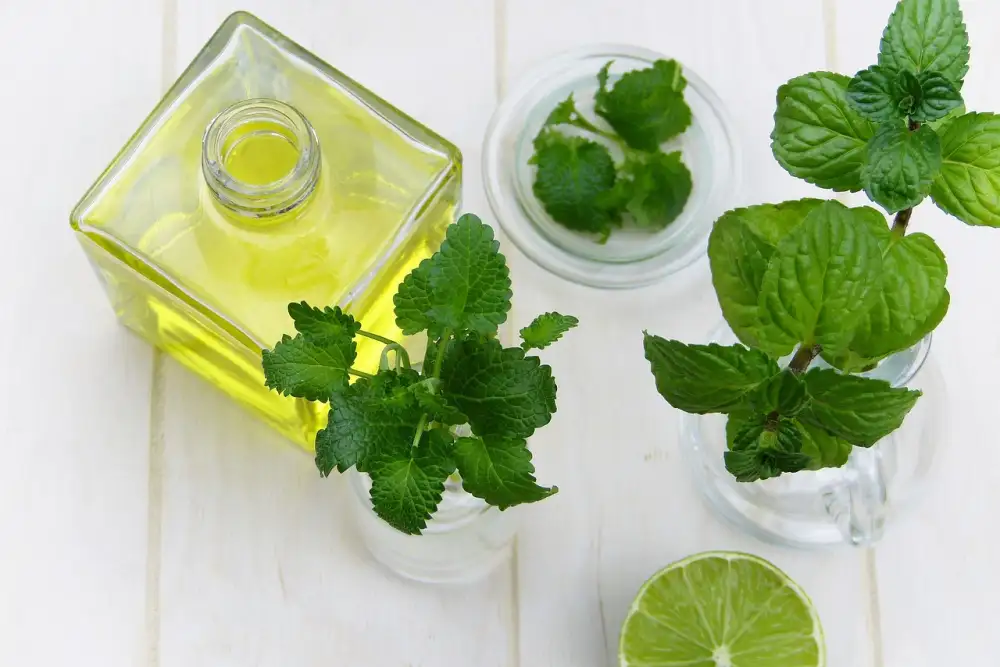Can Peppermint Oil Repel Mice? Unveiling the Truth Behind This Home Remedy

Mice infestations can be a nightmare for homeowners. These tiny creatures can wreak havoc in our homes, damaging property and spreading diseases. While there are various methods to tackle this problem, many people are turning to natural remedies as a safer and more environmentally friendly solution. One such remedy that has gained popularity is the use of peppermint oil. But does it really work? In this article, we will delve into the truth behind peppermint oil's effectiveness as a mouse repellent and explore how it can be used to keep these unwanted guests at bay.
Understanding the problem: Mice infestation in homes
Mice infestation in homes is a common problem that many homeowners face. These small rodents can cause damage to property, contaminate food, and spread diseases. Mice are attracted to homes because they provide them with a warm shelter, a constant food source, and easy access to water. They can squeeze through tiny openings and quickly multiply, making it difficult to control their population. Traditional methods of mouse control often involve the use of traps or toxic chemicals, which may not be suitable for everyone. As a result, many people are turning to natural remedies such as peppermint oil as a potential solution to repel mice from their homes.
Exploring natural remedies: Peppermint oil as a potential solution
Peppermint oil has long been hailed as a natural remedy for various ailments, but can it also help in repelling mice? Many homeowners have turned to this aromatic oil as a potential solution to their mouse infestation woes. With its strong scent and reported repellent properties, peppermint oil has gained popularity as an alternative to chemical-based rodent repellents. But does it really work? Let's delve deeper into the science behind peppermint oil's potential as a mouse repellent.
The science behind peppermint oil's repellent properties
Peppermint oil's repellent properties can be attributed to its strong scent, which is overpowering for mice. The active compounds in peppermint oil, such as menthol and pulegone, act as irritants to the rodents' olfactory system. These compounds disrupt the mice's ability to smell and navigate, making the environment inhospitable for them. Additionally, peppermint oil has been found to affect the mice's taste receptors, deterring them from consuming food in treated areas. Studies have shown that mice exhibit avoidance behavior when exposed to peppermint oil, further supporting its effectiveness as a natural mouse repellent.
How to use peppermint oil to repel mice effectively
To use peppermint oil effectively as a mouse repellent, follow these steps:
1. Choose a high-quality peppermint oil: Look for 100% pure peppermint essential oil without any additives or synthetic fragrances.
2. Determine the infested areas: Identify the areas where mice are most active, such as entry points, nesting spots, or areas with droppings.
3. Prepare a peppermint oil solution: Mix 10-15 drops of peppermint oil with one cup of water in a spray bottle. Shake well to ensure proper blending.
4. Spray the solution: Liberally spray the peppermint oil solution in the infested areas, focusing on corners, cracks, and crevices where mice may hide or enter.
5. Reapply regularly: Peppermint scent tends to dissipate over time, so it's important to reapply the solution every few days or when the smell fades away.
6. Enhance effectiveness with cotton balls: Soak cotton balls in undiluted peppermint oil and place them strategically near mouse activity areas for an extra deterrent effect.
Remember that consistency is key when using peppermint oil as a repellent. Regularly applying and refreshing the solution will help maintain its effectiveness in deterring mice from your home.
Other considerations and precautions when using peppermint oil
1. Quality of the oil: It is important to use high-quality, pure peppermint oil for maximum effectiveness. Look for oils that are labeled as 100% pure and organic.
2. Concentration: Peppermint oil should be used in a concentrated form to repel mice effectively. Diluting it with water or other substances may reduce its potency.
3. Placement of cotton balls: When using peppermint oil, soak cotton balls in the oil and place them strategically around areas where mice are likely to enter or nest. This includes near entry points, corners, and dark spaces.
4. Reapplication: Peppermint oil loses its scent over time, so it is necessary to reapply it regularly to maintain its repellent properties. This is especially important after cleaning or if there has been heavy rainfall.
5. Potential allergic reactions: Some individuals may have allergies or sensitivities to peppermint oil. If you experience any adverse reactions such as skin irritation or respiratory issues, discontinue use immediately and consult a healthcare professional.
6. Not a guaranteed solution: While many people have reported success with using peppermint oil as a mouse repellent, it is important to note that results may vary depending on the severity of the infestation and other factors unique to each home.
By considering these precautions and following proper usage guidelines, you can increase the chances of effectively repelling mice using peppermint oil while minimizing any potential risks or side effects.
While peppermint oil has been touted as a natural remedy for repelling mice, its effectiveness may vary from case to case. Some homeowners have reported success in deterring mice with peppermint oil, while others have found it to be ineffective.
It is important to note that peppermint oil should not be solely relied upon as the sole solution for a severe mouse infestation. Professional pest control services may be necessary in such cases.
However, for mild infestations or as a preventive measure, using peppermint oil can be worth a try. Its strong scent and potential irritant properties may discourage mice from entering your home or specific areas.
To maximize the effectiveness of peppermint oil, it is recommended to use 100% pure essential oil rather than diluted versions. Additionally, regularly reapplying the oil and combining it with other preventive measures like sealing entry points and keeping food sources inaccessible can enhance its repellent effects.
Ultimately, while peppermint oil may not guarantee complete eradication of mice in all situations, it can serve as a useful tool in your arsenal against these unwanted pests. Experimenting with different methods and finding what works best for your particular situation is key when using natural remedies like peppermint oil.
Published: 20. 12. 2023
Category: Food



